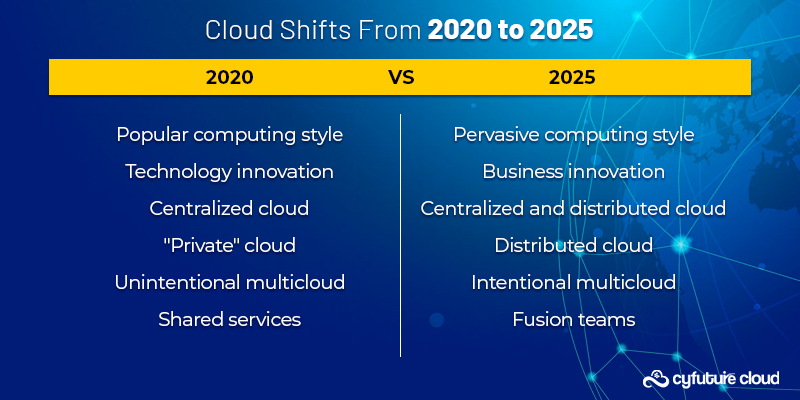Kronos Ccf The Future Of Cloud Computing

As we look towards the horizon of technology, one question plays on the collective consciousness of IT professionals and business leaders alike: "What does the future hold for cloud computing?" Imagine a world where businesses can scale effortlessly, and data is processed in real-time without latency—sounds fantastic, right? However, along with this exhilarating vision comes a significant challenge: how can organizations navigate the complexities of evolving cloud technologies while ensuring security and efficiency?
To address this inquiry adequately, we must delve into several facets of cloud computing's evolution, particularly through the lens of innovative models like Kronos Cloud Computing Framework (CCF). The CCF emphasizes scalability, interconnectivity, and resource optimization, paving the way for an enhanced cloud experience. But what does this mean for businesses that are already entrenched in traditional infrastructure?
Initially, it is crucial to recognize that the landscape of cloud computing is not static; it is constantly evolving. As businesses transition from on-premises solutions to cloud-based models, they often encounter a barrage of decisions surrounding deployment: public, private, or hybrid? Each option brings its nuances, and organizations must evaluate which alignment best suits their operational needs. The Kronos CCF framework strikes a balance, seamlessly integrating these modalities to optimize performance and harness the best of each world.
Moreover, the Kronos CCF framework is particularly adept at addressing the critical aspect of interoperability, which is frequently underestimated. In a world where multiple platforms and applications vie for dominance, the ability for disparate systems to communicate effectively is paramount. The adoption of microservices architecture within the Kronos CCF allows businesses to develop applications that can be more easily managed and scaled, ultimately leading to increased agility and decreased time-to-market.
While the integration of such advanced frameworks seems straightforward, organizations often face the daunting paradox of overcomplication. In the endeavor to incorporate sophisticated technologies, teams may inadvertently create silos, hampering collaboration and innovation. The playful irony here is that as we rush towards digital transformation, we sometimes forget the essence of what it means to be nimble—could efforts to innovate actually hinder progress?
Another layer of complexity in the use of Kronos CCF lies in the area of data management. As organizations gather more data, the challenge transforms from simple storage to effective analysis and utilization. The framework encourages real-time data integration and analytics, which can significantly enhance decision-making processes. However, organizations must also grapple with the ethics and privacy concerns associated with data handling. Specifically, how can businesses utilize this wealth of information without infringing on customers' privacy rights? This is where robust governance policies and compliance measures become non-negotiable.
Moreover, the transition toward a fully integrated cloud model necessitates the upskilling of personnel. Cloud computing demands a different skill set—one that melds both technical prowess and strategic vision. The overarching question remains: how can firms cultivate a culture of continuous learning to keep pace with technological change? Without investing in this human capital, the potential advantages of the Kronos CCF may be underutilized, resulting in a dreaded disconnect between technology and talent.
In considering the future of cloud computing, another pivotal topic is the role of artificial intelligence (AI) and machine learning (ML) within the cloud ecosystem. The Kronos CCF harnesses these technologies to automate processes, facilitate smarter analytics, and drive innovation. However, what happens when machines begin to make decisions on their own? The fear of over-reliance on AI can be overwhelming. Businesses must navigate the fine line between leveraging AI capabilities and maintaining human oversight. This raises the philosophical quandary: at what point does automation become counterproductive?
In an era where every decision can be data-backed but lacks emotional intelligence, critical thinking remains an invaluable asset. As companies adopt the Kronos CCF, they must also embrace the human element inherent in technology. Organizations should foster environments where diverse perspectives can influence technology application, ensuring that human judgment and values are never overshadowed by algorithms.
As we ponder the trajectory of cloud computing, it is essential to acknowledge the potential for unforeseen challenges. With rapid advancements come questions about sustainability and energy consumption associated with large-scale cloud operations. How can companies that adopt Kronos CCF remain environmentally conscious while reaping the benefits of cloud technology? Sustainable cloud initiatives will need to become focal points, integrating green technologies and energy-efficient practices into the fabric of cloud strategies.
Ultimately, the journey into the future of cloud computing—especially through frameworks like Kronos CCF—is rife with opportunity and challenge. Businesses will continually have to adapt, learning in real-time, assessing risks, and making informed decisions to avoid the perils of innovation overload. The essence lies in striking a harmonious balance between technological adoption and governance, integration and creativity, sustainability and growth.
Now that we've explored various dimensions of what the future of cloud computing could entail, we circle back to that initial playful question. Are we ready to embrace the radical shifts this technology demands, or will we allow ourselves to be trapped in digital inertia? The time to act is now, and organizations must unite and charge into this expansive cloud frontier equipped with knowledge, strategy, and an adaptable mindset.
Post a Comment for "Kronos Ccf The Future Of Cloud Computing"